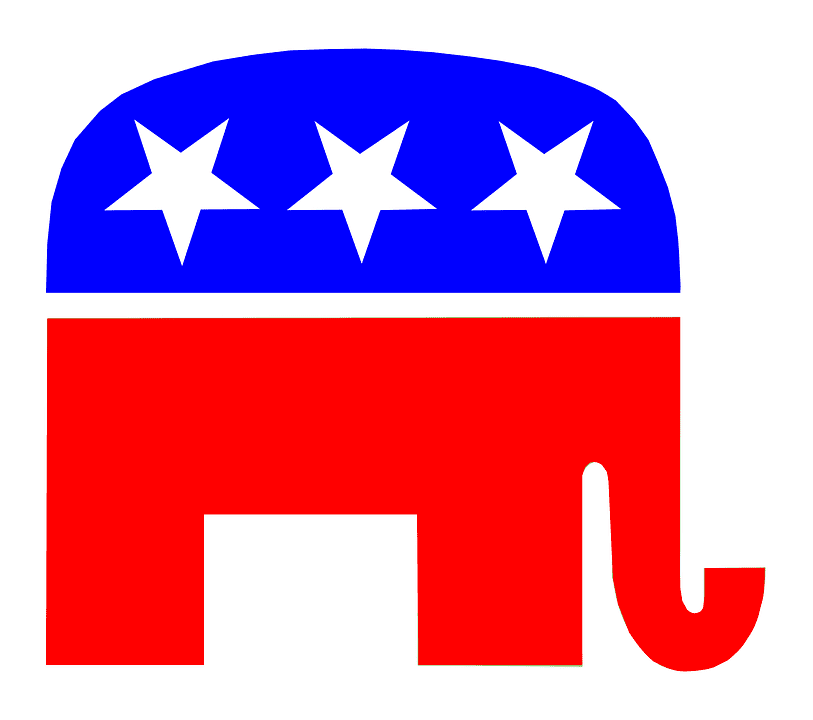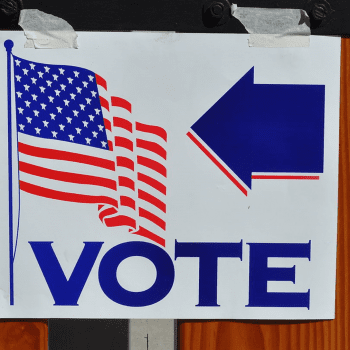
So, look, it’s no surprise that I identify with the Republican Party, but let’s break this down. What do I think of as being Republican Party values?
With respect to the economy, it means a belief that self-reliance and free enterprise are the keys to a strong and growing economy. While a safety net is important, the plain fact of the matter is that a generous social welfare state simply doesn’t work in the long run, and that innovation in private business is what makes our economy healthy, and, ultimately, wealthy. Punitive levels of taxation and regulation, or special treatment for favored industries (“crony capitalism”), might benefit the taxers and regulators, but do more harm than good in the long run. And strong families, with mothers and fathers, are a key ingredient as well, rather than treating single parenting (and government benefits) as the norm.
And by the way — the Tea Party? The Republican Party has a track record of claiming to support fiscal responsibility, but not following through. The Tea Party’s primary objective was to hold the GOP to that promise.
With respect to foreign policy, it means a belief that the United States has a responsibility, as a Superpower, to intervene in world affairs to promote human rights and oppose oppressive regimes, with due recognition of all the pragmatic realities of the world. And it means a strong national defense, prepared to intervene at any point that it becomes necessary.
It means a belief that free trade benefits everyone, in the long run, and that, even as Americans working in particular industries may struggle as a result, we’re better off if it trade brings prosperity to poor nations.
With respect to civil rights and minority-group interests, well, Republicans would say that they unhesitatingly believe in equal treatment under the law, but at the same time, identity-group politics, meant to advance the causes of minorities, taken too far, do more harm than good, by sorting us all into identities based on ethnic origin and sex.
With respect to “life issues” — well, once upon a time, this wasn’t a partisan issue, and it was possible to be pro-life and either a Democrat or a Republican. Not any longer.
And the Second Amendment? Well, I don’t know that there’s anything distinctively Republican about opposing gun control, but wasn’t a lot of the partisan sorting-out on this a regionalism thing? That is, once the coasts and the cities, without traditions of hunting or self-defense, had become Democratic strongholds, pro- and anti-gun control sorted out in that manner.
With respect to immigration, well, it’s hard to fit this one in. It wasn’t a partisan issue for many years. I oppose an amnesty program unless it genuinely, believeably has a design that ensures it’ll be a one-time amnesty, not just the next in the series, but I don’t know whether I can reasonably claim that this is a distinctively Republican point of view. The Gang of 8 amnesty try was bipartisan, and the 2006 try was as well. To be sure, this is an alignment of business interests and Hispanic voting bloc supporters/panderers, and those who genuinely and truly believe in open immigration–and the sort of open immigration that these programs promise (via their “guest worker” programs) is supported by politicians and opposed by the grassroots. In a way that’s been a problem, to have a divisive issue where the Republican Party finds itself unable to explain its principled beliefs.
So look at this list of issues. What am I missing? Sure, I’m glossing over issues, simplifying, and partisan Democrats may or may not start hyperventilating and saying that Republicans hate the poor and want them to suffer, but you get my general point: there is no free lunch.
And here’s the problem with the Republican Party: Donald Trump is not a Republican. He arbitrarily and randomly promises government programs, he rejects free trade, he promotes an isolationist foreign policy.
Now, to be sure, he’s not the only Republican who fails this test, though others do in different ways. Many “RINOs” legitimately found their way to the Republican Party as being the closer match, of the two, to their beliefs, but others, unfortunately, in their effort to advance their political fortunes, moved ever closer to that accusation of Republicans as corporate shills.
But if we ask the question, “what happens to the Republican Party after Trump?” we have to acknowledge two things:
First, that Trump took over the Republican Party for his own purposes, and,
Second, that Republican leadership let this happen. Why? Partly perhaps because they believed they could benefit from his celebrity. Partly it was the fault of men like Chris Christie, who figured they’d benefit from a Trump rise. Because of the foolishness of the other candidates, for whom the goal of reaching the nomination was more important. Their supporters, who never cut them off. A winner-takes-all primary system designed to get the eventual nominee to the finish line quickly, without regard for the fitness of that nominee, or, rather, under the assumption that any such nominee would be sufficiently fit and the benefit of a quick nomination process would outweigh the moderate disadvantage of a less-perfect nominee. And a view of the Republican Party as a mechanism for advancing one’s political career, to be used by whoever chooses to do so under the “Republican” mantle.
The end result: for many Republicans, there is no true Republican in this election, so there is no betrayal to the Republican Party in not voting for Trump.
What will the Republican Party leadership do when the election is over?
Unfortunately, they’ll likely declare it to have been a nightmare of no relevance to anything.
What should they do? (Well, besides listen to me, that is.)
Well, among other things, they need to decide for themselves and then communicate to the country what it means to be Republican, as a brand identity, if you will — that is, assuming that they believe any of it in the first place.
image from Pixabay (public domain), https://pixabay.com/en/republicans-elephant-political-party-303843/












